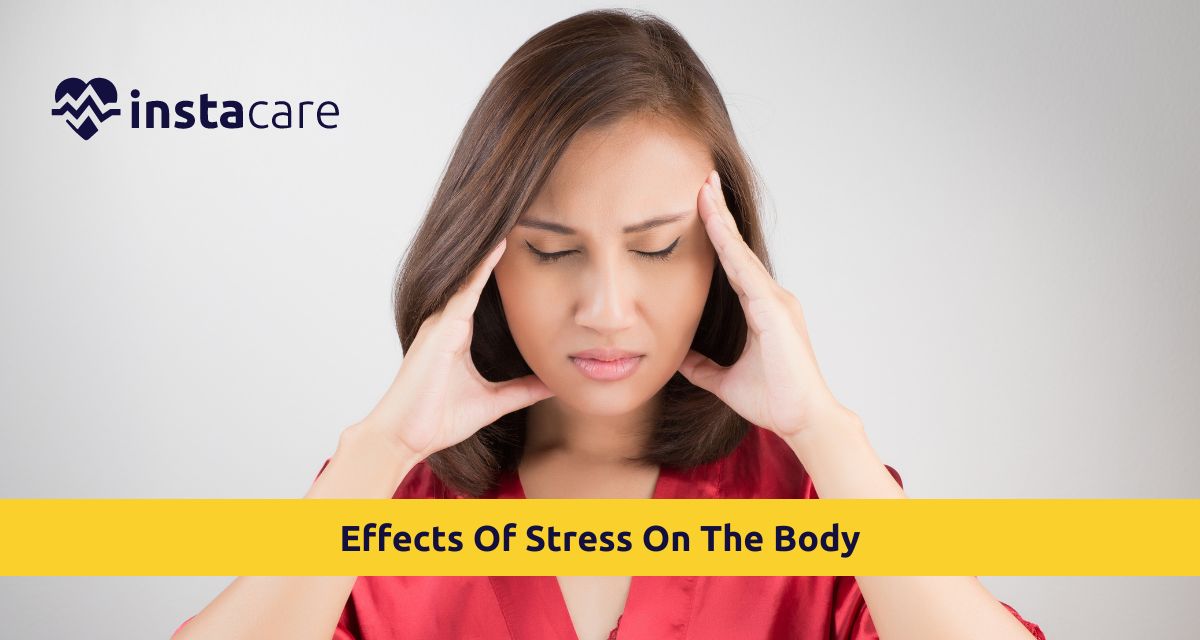Even while life can be stressful at times,
what about circumstances which greatly affect your physical well-being?
Naturally, there must be a certain amount of stress that is healthy and even
beneficial, but excessive stress can cause a wide range of health issues, from
brain disorders to digestive system problems. I go into the complex process of
determining the physical effects of stress and offer suggestions for improving
your ability to manage it below.
1. What Is Stress?
Stress is the response of the body to any
kind of stress or difficulty. It can include adrenaline and cortisol two drugs
which help prepare the body for a "survival" response. In the short
term, stress can enable you to stay alert and focused; however, over the long
term, stress damages your body and brain.
Types Of Stress
- Acute stress: That is immediate stress resulting from danger or challenges, for example giving a speech, or threatening .
- Chronic stress: That is, one experiences chronic conditions of stress without relief, such as constant financial strain or work-related stress .
2. Stress And The Brain: The Mental And Emotional Impact
The human brain is very sensitive to the
effect of stress that is suffered for a long time. Your brain senses stress any
time it releases some cortisol, which affects your mood, cognitive functions,
and memory.
Cognitive Disinhibition Memory Loss
As increasing levels of the hormone are
linked to improved memory and even focus over time, this results in poor
improvements in these areas. The contrasting studies show that the hippocampus,
the area of the brain responsible for supporting memory and learning, is
decreasing as a result of stress. Usually, this results in a long-term
reduction in mental abilities.
Psychological Effects
Extreme and long-lasting stress contributes
to and is also a trigger for developing or intensifying mental conditions,
which include:
- Anxiety: The amygdala takes part in the fear and anxiety response and becomes overactive in situations of extreme tension and worry.
- Depression: Long-term stress can even decrease the brain's supply of the neurotransmitter leaving a patient at greater risk to depression.
3. Stress And The Heart: The Physiological Effect
The heart would be under enormous stress
from it. Whenever you are under pressure, your body will secrete some amount of
adrenaline. This is because whenever adrenaline is present the rates of heart
beating increases and therefore the blood pressure too since the heart is
working harder.
More Likely Risk Of Heart Conditions
One of the many illnesses that long-term
stress can induce is high blood pressure, which also raises the risk of heart
attacks and strokes. All things considered, these events would leave patients
in a constant state of stress, which usually results in the adoption of
unhealthy coping strategies like smoking and overeating, among other things,
and eventually leaves patients with heart disease.
Stress-Related Palpitations
Shortly after undergoing stress, a person
may get tremors or feel as though their heart is not beating normally. This is
due to the hormones the body uses, which cause the heart to beat more quickly
than typical at other times.
4. What Stress Does To Your Immunity
Just like stress can't be psychological and
heart-related only, it affects your immunity, too.
Debilitated Immunity
Additionally, cortisol builds up in the
body over time and affects immune system performance, making you more at risk
for illnesses and infections. Chronic stress causes inflammation, which is one
element linked to autoimmune issues and most chronic diseases.
Poor Recovery
If you have chronic stress, your body will
take much longer to heal from any type of injury or disease. Stress slows the
production of prime white blood cells which keep infections away.
View More: Various Health Stress Of Unemployment In Pakistan
5. Digestive Disorders: Stress And Your Stomach
The gut and the brain are pretty linked.
Stress can play a deep role in your gut. Ever have stomach butterflies when you
were nervous? That's your gut talking responding to stress.
Gastrointestinal Disorders
Other gastric disorders include
ill-tempered intestine condition, ulcers, and other issues that are worsened by
unneeded pressure.
Irritable Bowel Syndrome (IBS)
Intestine Condition, which involve the
diarrhea, inflammation, and spasms in the intestines, are provoked by stress.
Gastric Ulcers
Stress may worsen ulcers by increasing the
production of stomach acid, even though stress is not a cause of ulcers.
Changes In Appetite
Stress also has an effect on how one eats
just like it does on the physical body. For example, when a person is stressed,
some lose appetite and therefore go on to suffer from digestive problems;
whereas, others seek comfort food and therefore gain un healthy weight.
6. Muscle Tension And Pain
When your body experiences a stress event,
you tense up your muscles during the "fight-or-flight" response.
Although this is very helpful in the short time of the stressful situation, it
can result in chronic pain if it's stayed tensed for some time.
Stress-Related Tension
Generally, places where stress-related
tension tends to develop include:
- Neck And Shoulders: Stress usually appears as tightness in these regions and may cause tension headaches or migraines.
- Lower Back: Stress can also trigger or aggravate chronic pain in the lower parts of the back.
7. Stress And Your Skin
Even, stress can bring about issues on your
skin in terms of worsening an already existing condition or even trigger a new
one.
Acne And Breakouts
When levels of cortisol are high, this has
effects of increasing oil production on the surface of the skin; this
eventually leads to blockage of the pores leading to acne.
Stress may also worsen certain inflammatory
skin disorders such as eczema or psoriasis.
Premature Aging
Such types of stress cause the formation of
free radicals that destroy skin cells and cause early aging. Long term chronic
stress may lead to wrinkles and dull dry skin.
8. Effects Of Stress On Reproductive Health
Stress impacts the male and female reproductive
systems.
Effects On Women
Stress alters the menstrual cycle of women;
therefore they may have an uncoordinated period or no menstruation-no
menstruation. Stress also affects fertility too, which accelerates symptoms of
menopause.
Effects On Men
It has been established that stress reduces
a man's testosterone production. This decreases sexual drive and can therefore
be damaging to male fertility and sperm production or spermiogenesis. One of
the biggest recent revelations has been that it leads to increased chances of
erectile dysfunction according to several latest research studies.
Conclusion
Stress is inevitable in the community today. Due to its strong ability to affect the human body, it is possible for one to use information that is presented herein to minimize its impact by getting to the root cause of the problem – or as they say, ‘getting to the bull by the horns’. Knowing how it affects different parts of your brain and stomach will help you mentally get ready. This is where stress-reduction techniques like physical activity, practicing mindfulness, and obtaining enough rest become useful.
These are a few helpful techniques to raise your general quality
of life and shield your health from all the harmful effects of chronic stress. While
stress management is more like a process, one can protect their health and be
happier, healthier if they stop and go for help if the required tools are
available.
Please book an appointment with the best Psychologist in Lahore, Karachi, Islamabad, and all major cities of Pakistan through InstaCare, or call our helpline at 03171777509 to find the verified doctor for your disease.












